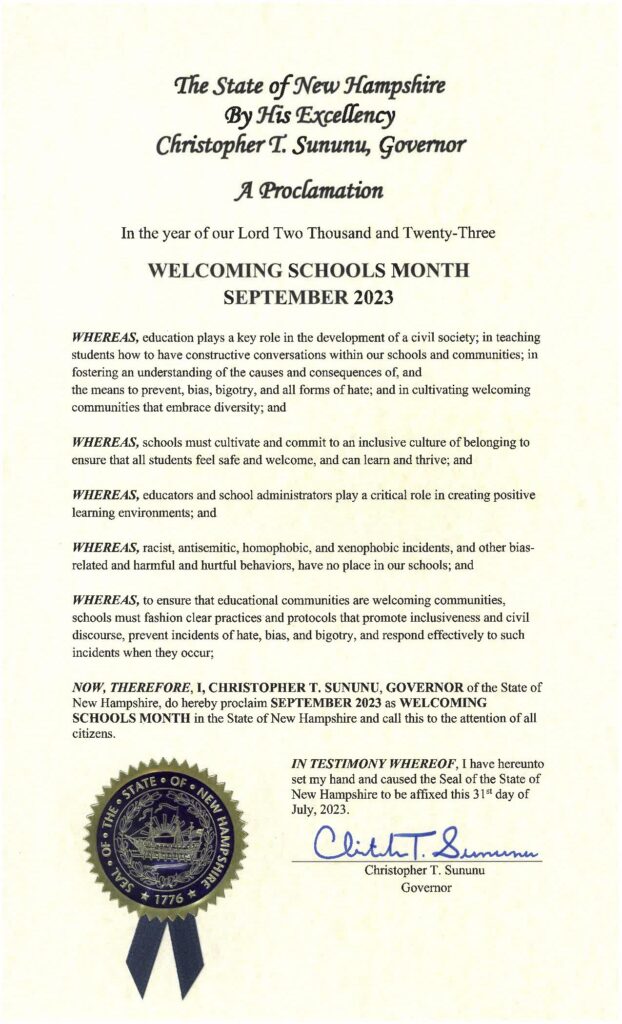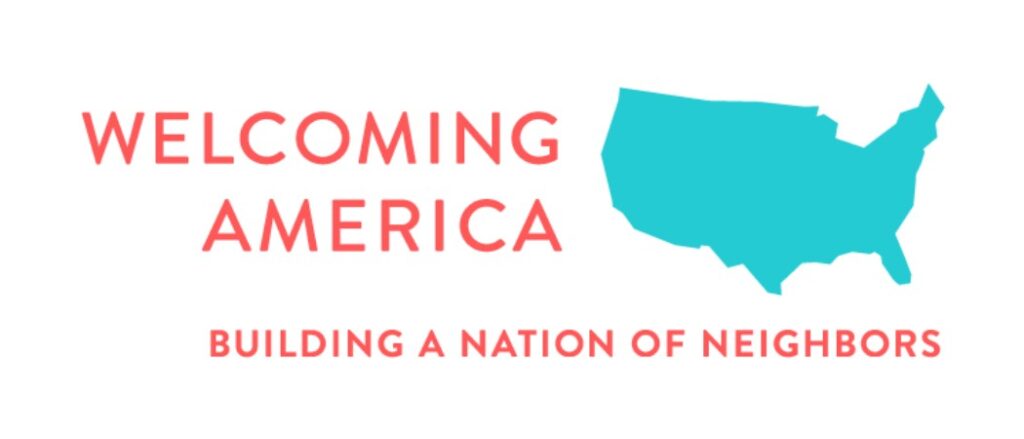The Most Common Arguments Against Immigration and Why They’re Wrong
A place to learn about immigration
A place to learn about immigration


Take a moment to try to gain a green card, it’s not as easy as many think….

If you know of any refugees in the Franklin/Concord/Manchester area who would like working, simple sewing machines, please let us know at WelcomingNH@miracoalition.org
A donor is having several machines serviced, with the intent of donating them. Do you know of families who would want them? I
The machines are sturdy and fairly basic – no computers/embroidery machines!
Again if you know of anyone please contact us at WelcomingNH@miracoalition.org

The New Hampshire Charitable Foundation is reaching out to partners across our networks and communities to share this opportunity for anyone interested in joining the Community Design Team for the Foundation’s Racial Justice Fund. The community-led Racial Justice Fund, established with dedicated funding from the Foundation, is one way in which the Foundation is working to advance racial justice in New Hampshire. The design of the Racial Justice Fund will be led by a group of community members who have experienced racial injustice and are committed to advancing racial justice. This group will define goals and priorities to advance racial justice work and determine how the fund will be allocated. You can learn more about the fund here.
The Foundation is seeking 15 community members to join a team to design and implement the first phase of work of this statewide fund. If you are interested in being a part of the Community Design Team please complete the inquiry form by August 25th. We hope you will also share this opportunity with people across your networks. Community Design Team members will be compensated for their work, which will total approximately 75-80 hours from September, 2023 to May, 2024.
Please feel free to reach out to Meena Gyawali at Meena.Gyawali@nhcf.org or 603-225-6641 ext. 219 if you have questions or could use support in inquiring to be part of the Community Design Team.
We are looking forward to moving this important work forward together. Please feel free to share this information with anyone who might be interested.
Meena Gyawali
Senior Program Officer
New Hampshire Charitable Foundation
37 Pleasant Street
Concord, NH 03301
phone 603-225-6641 x 219
direct 603-369-6532

The National Council on Interpreting in Health Care is a multidisciplinary organization whose mission is to promote and enhance language access in health care in the United States.


This rule, referred to by many as an “asylum ban,” is strikingly similar to two previous attempts under the Trump administration to institute rules severely limiting access to asylum. While the rule is not a total asylum ban, the process of even applying for this humanitarian protection has become significantly less accessible. This rule, titled “Circumvention of Lawful Pathways,” established a “rebuttable presumption of asylum ineligibility” for anyone who passes through another country to reach the U.S.-Mexico border without first seeking protection there. Exceptions can be made for some “extremely compelling circumstances” and children traveling alone are also exempt. But in essence, the majority of immigrants arriving at the southern border who wish to seek asylum will be denied that opportunity under this rule.
Immigrants’ rights groups sued to block the rule and argued that it violated U.S. asylum laws that protect the right to asylum, regardless of how a person enters the country. They argued that under the Biden administration’s rule, immigrants were forced to seek protection in countries that may not have the same robust asylum system and human rights protections as the U.S. and that the new process leaves them unprotected, in a dangerous state of limbo. Additionally, they argued that the CBP One app that the U.S. government wants immigrants to use to apply for appointments to seek asylum at a port of entry has caused unacceptable problems from the outset as it frequently crashes, does not have enough available appointments compared to the level of demand, and is only available in limited languages.
In implementing the rule, the Biden administration emphasized complex dynamics at play with the U.S. immigration system and said that the rule was a key part of its strategy to strike a balance between strict border enforcement and making alternate options available for immigrants to enter the country via humanitarian parole and other pathways and to pursue valid asylum claims via the new system.
The judge’s ruling found that the Biden administration’s asylum restrictions under the “Circumvention of Lawful Pathways” rule violate the United States’ legal obligations to allow those fleeing violence or in fear of persecution to request humanitarian protection on American soil. His ruling means that the judge determined the rule to be unlawful and will stop it from being utilized. However, the judge suspended his ruling for two weeks to allow the Justice Department to file an appeal, which the administration made immediately clear that it would do. They are also seeking a longer suspension of the ruling while they work on the appeal. This means that the restrictions on asylum under this rule will continue until at least August 8, 2023.
The Biden administration has indicated that it will continue to defend the rule restricting asylum. Whether or not the judge’s decision to block the rule goes into effect, the CPB One app, various new parole processes, and other previously existing pathways to enter the United States will still be available. However, the restrictions caused by the rule often results in the denial of a meaningful opportunity for immigrants to seek asylum and can also lead families, children, and adults left to wait outside of the United States where many immigrants face dangerous conditions and horrific violence, which is why advocates have been speaking out against it.
Immigrants’ rights advocates will continue to argue for the rule to be blocked and for the administration instead to focus on ways to support the work that communities and organizations across the country are doing to welcome the arrival of people seeking asylum and safety. This includes calling on the Biden administration to allow people to access the regular asylum process, expand safe migration pathways, build infrastructure at U.S. ports of entry, and coordinate with and provide funding to nonprofits, community-based organizations, and state and local governments that are welcoming immigrants into their communities.
Gate City Bike Co-op repairs used bikes that are donated and offer them at no cost to low income residents of the greater Nashua area.

Clients will need a signed voucher from a local social agency and an appointment to get a bike.
Gate City Bike Co-op is continuing to look for a distribution space downtown and are hoping to find an angel/hero/champion that has an unused space that they would let them use. An ideal space would be 1000 square feet but they could make it work with less. The space does not have to be pretty, just accessible and free or cheap. Please let them know if you have any leads or ideas.
If there are similar organizations out there please let Welcoming NH know so we can share them with members! WelcomingNH@Miracoalition.org
The New Hampshire Department of Education is partnering with New Hampshire camps and school-age summer programs across the state to offer students the unique opportunity to move beyond COVID-19 and be a kid again. Students of all ages, backgrounds and abilities benefit from exposure to short-term summer enrichment programs, including in the areas of challenge, friend-making, positivity, and emotional safety. These are all things that New Hampshire camps and school-age programs do best.
© 2022 New Hampshire Department of Education. All rights reserved.
Education.NH.gov


Eligible students and corresponding youth recreation camp fees include:
Eligible Programs
Families Apply Here

Our goal for New Hampshire students is that they return to learning in the fall with rekindled curiosity, rejuvenated energy, excitement and anticipation.
Fees for programs occurring between June 1 and August 31 of the program year, including programming, before and after care services, snacks and meals, transportation, registration, and clothing/attire purchased as part of registration
The contractor ClassWallet will provide a digital wallet that will facilitate families’ payment of camp fees.
* participating camps only.






For application assistance, please contact FACTS Management Customer Service at 844-245-0168.
Camps and summer programs must be licensed through the New Hampshire Department of Health and Human Services in order to participate. Please verify that your program is eligible prior to registering on Class Wallet.